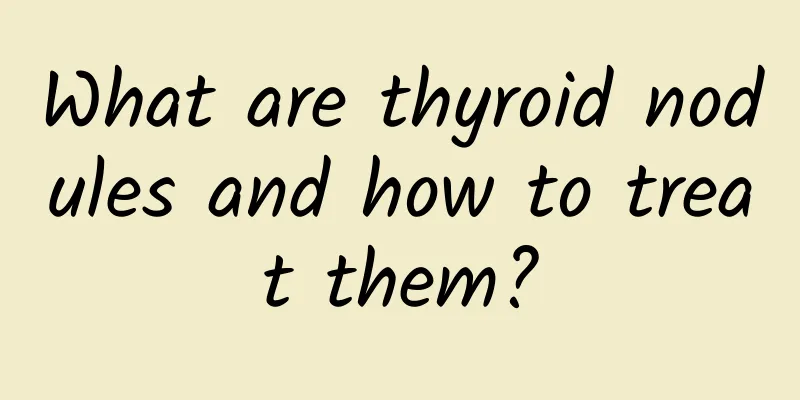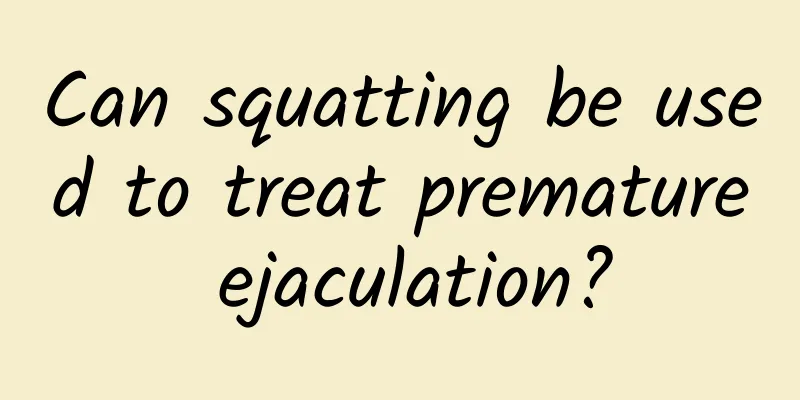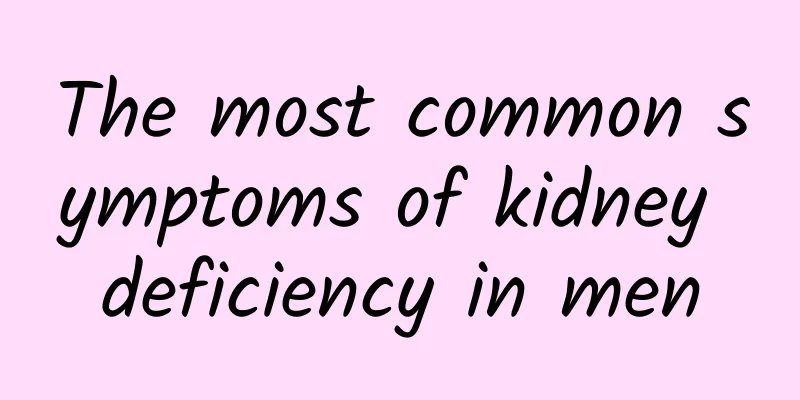What are thyroid nodules and how to treat them?

|
Thyroid nodules can be benign or malignant. Benign nodules mainly include thyroid adenoma, nodular thyroid gland, etc., while malignant nodules mainly include thyroid cancer. What are the symptoms of thyroid nodules? How should thyroid nodules be treated? 1. Symptoms of thyroid nodules 1) Tracheal compression: more common. Compression from one side causes the trachea to shift or bend to the other side; compression from both sides causes the trachea to narrow and make breathing difficult, especially when there is retrosternal thyroid swelling. Long-term compression of the tracheal wall can cause tracheal softening and cause suffocation. 2) Compression of the esophagus: Rare. Only substernal thyroid glands may compress the esophagus, causing discomfort when swallowing, but will not cause obstructive symptoms. 3) Compression of deep large veins in the neck: This can cause difficulty in blood return to the head and neck. This situation is more common in large thyroid glands located at the upper opening of the chest, especially retrosternal thyroid glands. The patient's face is swollen with bluish purple color, and the superficial veins in the neck and chest are significantly dilated. 4) Compression of the recurrent laryngeal nerve: can cause vocal cord paralysis (usually on one side), and the patient's voice becomes hoarse. Compression of the sympathetic nerve ganglia in the neck can cause Horner syndrome, which is extremely rare. 2. Treatment Methods 1) Thyroid hormone: You can take some thyroid hormone preparations to inhibit excessive endogenous TSH secretion and supplement the deficiency of endogenous thyroid hormone to achieve the purpose of alleviating thyroid hyperplasia. It is suitable for thyroid adenoma caused by various causes, especially when the pathological changes are before the occurrence of colloid thyroid adenoma, it can have a significant effect. 2) Iodine supplementation: Iodine supplementation should be reasonable for those who are simply iodine deficient. After supplementation, the thyroid gland can be seen to shrink to varying degrees. 3) Treatment with Chinese medicine: Phlegm-resolving and hard-hard softening method: If only the neck is enlarged without any special subjective symptoms, it is a syndrome of qi stagnation and phlegm accumulation, and the treatment should be phlegm-resolving and hard-hard softening method. 4) Indications for surgical treatment: patients with clinical symptoms caused by compression of the trachea, esophagus or recurrent laryngeal nerve, patients with retrosternal thyroid gland, patients with giant thyroid gland that affects their daily life and work, patients with secondary hyperthyroidism due to nodular thyroid gland, and patients with suspected malignant transformation of nodular thyroid gland. |
<<: What are the dangers of intestinal spasm and how are they caused?
>>: What is thyroid nodule calcification and how is it treated?
Recommend
Sperm Secrets: Can Men Eat Their Own Sperm?
In medicine, men's sperm can be considered a ...
What medicine should I take for long-term masturbation?
Masturbation is an act that many people do to sat...
Causes of genital acne in men
Male friends, if you find acne on your genitals, ...
Thick sperm indicates poor motility
Since the secretion of male hormones in every mal...
Male prostate location map
Where is male prostatitis located? The male prost...
Prostatic fluid bacterial culture report
Semen culture is the most reliable way to diagnos...
Do men still have morning erections at the age of 60?
Morning erection is a normal physiological need o...
If a man's foreskin itches, be careful because this is too much!
As we all know, long foreskin is a common symptom...
What are the early symptoms of chronic prostatitis?
Many men are troubled by prostatitis. The treatme...
How to regulate men’s insufficient qi and blood?
It is said that women are prone to insufficient q...
How to treat and care for abscess caused by infection?
Abscess is a common symptom in life. Generally sp...
When physical depression sets in, your body will experience these changes!
Depression is a mental illness, but when depressi...
Is it normal for one testicle to be hard and the other soft?
The male testis is located in the scrotum, one on...
How to insert the prostate suppository into the anus?
To perform anal embolization with prostate anus, ...
What does it mean when a man's left eye twitches?
Although we often say "left eye twitching me...









